Sometimes, a game is as good as gold. So much gold, in fact, that it wins an award called the As D’or (the gold medal), which is the national game award in France handed out at the Festival International des Jeux in the first quarter of each year.
The overall winner for best game at this year’s FIJ was Trio (originally known in Japan as nana, designed by Kaya Miyano). Trio was published in France last year and has made its way to US shores in 2024.
The friendly publishing partner handling Trio’s US release, Jason Schneider at Happy Camper, sent me a copy of Trio to see what I thought. Across four plays (including a play of the original nana, which a Japanese card game lover here in the US broke out at a recent game night), I’ll tell you what I think about Trio by telling you what everyone who joined me at the table thought.
My wife: “Trio is a really good time.”
My 10-year-old: “I love the cards. I don’t know if I like the game or not, but I love the cards.”
My seven-year-old: “Daddy, can we play Trio again?” (This question came up four times on the night after our first play.)
John: “This is really good. But, the shinier 7 cards feel different than the other cards, so that’s a flaw…honestly, as the dealer, I could tell which players were getting the sevens.” (We’ll come back to this one.)
Beth: “See? I told you Trio would be really good.”
Walt: “Trio is great.”
Me: “This is the only version of Memory that I want to play.”
Brian: “Great.”
Saul: “I’m terrible at memory games. But I really liked this one.”
Rob: “I can’t believe I got the trick with the 11s wrong, because that’s the only reason you won that last game. But, yeah, Trio is great.”

So to Summarize, I Should Buy Trio, Right?
Yes, you should buy Trio. Or nana, if you want to pay the import fees to get a copy of the Japanese original.
You should buy Trio because it’s fast and easy to teach. Trio/nana is a memory game that plays in about 15 minutes. A deck of 36 cards—with three of each number, running from 1-12—is dealt out in equal portions to the players, with a small portion set aside and placed face-down in the middle of the table. Players organize their hand by placing cards in ascending order.
On a turn, the active player has a choice: ask another player to reveal the lowest or highest card in their hand, or flip one of the face-down cards in the middle of the table, Memory-style, to reveal a card. The active player can also simply reveal a card from their own hand, which typically happens when finishing a trio.
Based on the first card revealed on a turn, the active player can ask the same or a different player to reveal their lowest or highest unrevealed card, and if that number matches the first number revealed, they can keep going to try and find the third card in that set. If they fail, the turn ends, and the cards that were revealed during that turn are returned to a player’s hand or flipped back to their original face-down position. The turn also ends if that player successfully finds all three cards in a set.
The first player to collect three trios, or the trio of the shiny gold 7 cards, wins.
Trio was magic to all of the 15+ people who tried it with me. This deck of 36 cards can be played with 3-6 players (nana played 2-5 players), in a format that could work with core hobbyists and a seven-year-old at the same table.
It has a competitive mode that tests a player’s memory with a simple turn structure. It has a “spicy” mode if you get bored with the base game. There’s a team variant for either four or six players, featuring a card swap mechanism that works surprisingly well.
I’ll knock Trio in two areas. First, that card issue John mentioned above is legit. The game’s 36 cards have mostly the same feel on the numbered side of the card. But the sevens do feel different, like the foil is thicker and the pattern has a feel to it. That means when you are dealing cards, you may notice a slight difference when handing out each of the three 7 cards to other players.
Doesn’t break the game, but I’m surprised that two people called this out during my six-player play of Trio.
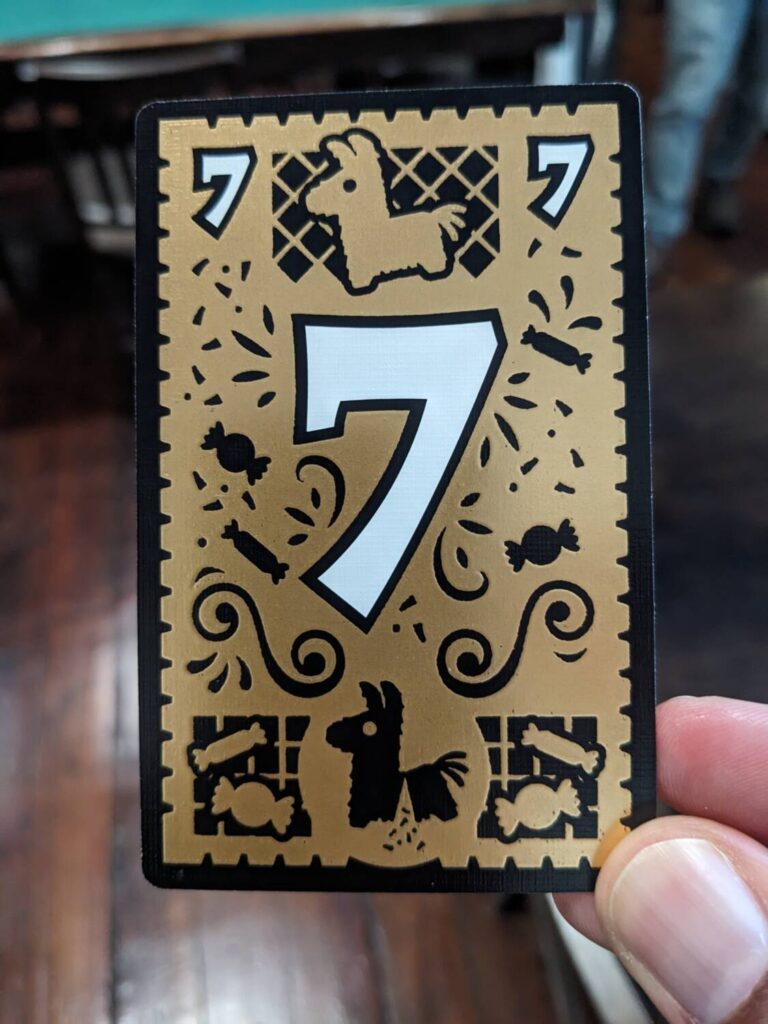
The second is a silly one: because the cards are so bright, featuring art that calls out each number type with a different color, you’re going to want to play Trio at either a round table (so that you definitely cannot see your neighbor’s cards) or a large-enough rectangular table so that you really can’t glance at an opponent’s hand.
Otherwise, Trio is never leaving my collection. It is a BLAST to watch players try to figure out who has which card, and to remember who has what as they wait patiently to take their next turn. In the game’s standard format, the face-down cards in the center of the table always lead to a comical reveal. “Oh, THAT’S where one of the 4s is!” Then the next player swoops in and asks the right people the right questions to steal a trio and win the game.
There’s a nice balance between remembering player hands and remembering cards in the center play area, especially after the first few cards start to disappear. Will you ask the right question? Will the player two spots ahead of you surface one of the cards you need to win?
I liked the team format, at least with six players. Each time a team wins a trio, the other teams get to swap a card, face-down, with their team mate. This allows you to see more and more of their hand, but also throw off other teams who think they have your hands down pat. It’s not necessary—don’t buy Trio only for the team format—but I like that there are different ways to attack the game’s formula.
The production is tidy and, save for the feel of those 7 cards, the bright cards do the trick. Even the first player determination—whoever last ate an avocado!—adds a little flair to a game that honestly didn’t need it.
Trio is for everyone. Buy Trio. Thank Mr. Miyano and the various global partners who are getting this game out to the masses after its initially small release in Japan. And thank me in the comments for recommending this game!


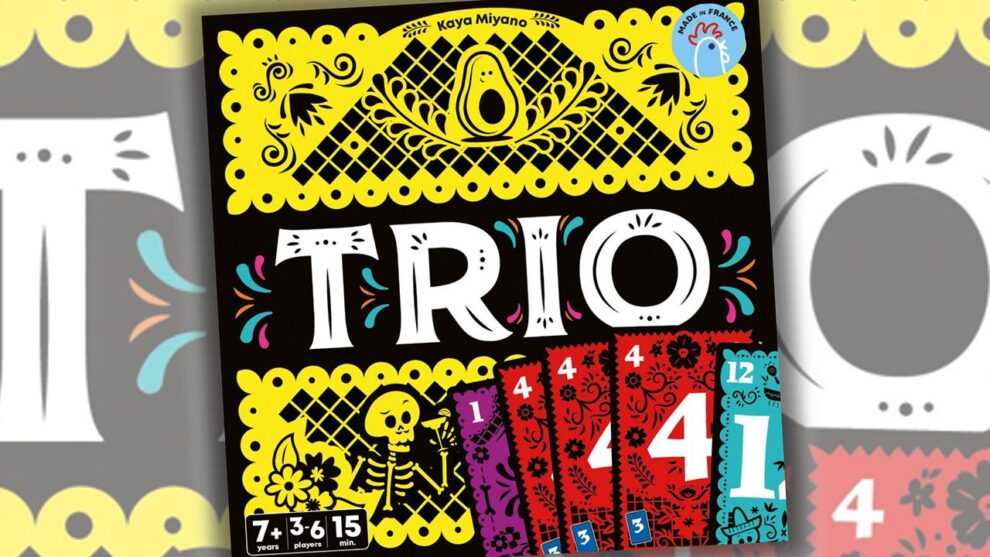


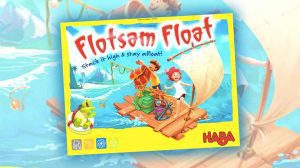

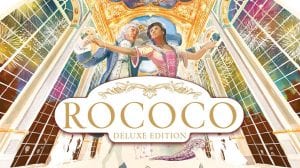

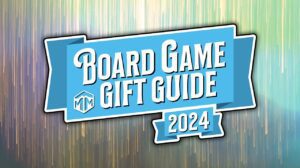


Add Comment